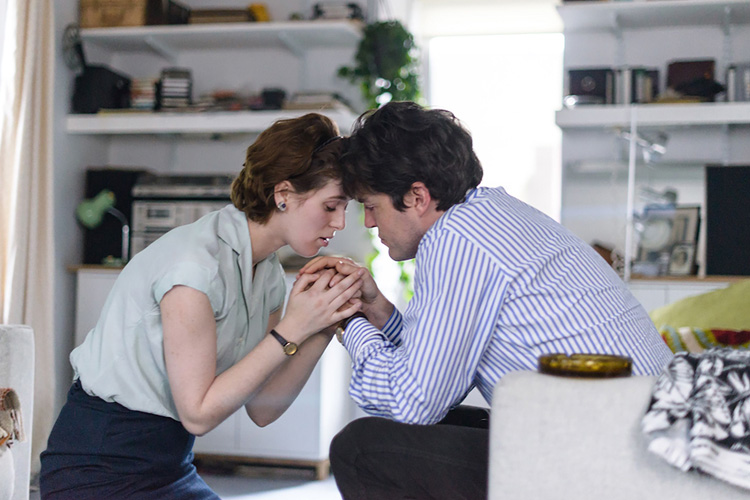Joanna Hogg’s The Souvenir, an esoteric avant-garde film, promises a sequel at the end of the credits. It’s rather tongue-in-cheek—on the cinematic spectrum, The Souvenir is the polar opposite of a Marvel movie—but it’s also sincere: as I write, the sequel is in pre-production and A24 has already bought the rights. This is only one of the ways in which Hogg’s latest film is impossible to pin down.
The Souvenir is an autobiographical, slightly fictionalized drama about Hogg’s tumultuous romantic relationship during her time in film school. Saying the film is about this story is off base, though: scenes don’t lead into one another so much as they unfold into fractals, jumping between Hogg’s memories like a daydream—like reading a journal with some of the pages torn out. The Souvenir is also a series of paintings, carefully composed and immaculately framed, as if a detailed sketch accompanied each page of the journal. It’s equal parts art piece and biography.
Hogg’s direction and David Raedeker’s cinematography, porcelain in their craft and quiet delicacy, are at odds with the tone of the memories they share. Hogg’s Souvenir self, meek film student Julie (Honor Swinton Byrne), has just met a posh government worker named Anthony (Tom Burke). Despite their opposite natures—Julie is quietly passionate, Anthony is loudly pretentious—they begin seeing each other romantically, and it’s not long before they’re living together. Disagreements over art and discoveries of major flaws ensue.
The first half of the movie is especially resistant to the flow of time. The Souvenir drops memories onto the screen without context, establishing a fleeting feeling before flitting away to the next one. It’s like we’re behind Hogg’s eyelids as she sorts her way through old moments, trying to pinpoint where romantic beginnings might’ve ended and personal endings could’ve began. The lack of cohesion begs questions that aren’t meant to be answered, which Hogg not-so-subtly defends through scenes of Julie in film school: she learns to break conventions, she’s told that her work is too obscure, she explains that she engages in filmmaking as an act of personal catharsis. The Souvenir’s non-apology rings true: this feels like a movie for Joanna Hogg, not a movie for us.
It almost seems disingenuous to release it in theaters. The Souvenir is an object of art for art’s sake: Hogg keeps her characters at an emotional distance and forgoes structural buildup, like she’s keeping the deepest connection to the movie a secret for herself. At times, it’s fascinating to watch The Souvenir challenge the notion that cinema needs to satisfy an audience; at other times, it’s just unsatisfying. The movie is gorgeously shot and clearly therapeutic for Hogg, but it was hard to escape the feeling that I shouldn’t be in the room for this session.
The Souvenir intentionally cultivates that feeling, though, so it was also hard not to appreciate the film’s steadfastness in its mission. But the atmosphere changes in the second half—eventually, The Souvenir coalesces into chronologically recognizable narrative, making it easier to follow and connect to, but also casting off some of its personal mystery. At least the encroaching familiarity allows for a simpler lens through which to see the heartfelt central performances.
The Souvenir isn’t for everyone because it might not be for anyone but its director. The quality of Hogg’s filmmaking is undeniable, though—perhaps the experiment will be more fulfilling when it’s paired with The Souvenir: Part II.
★★★ (3/5)




